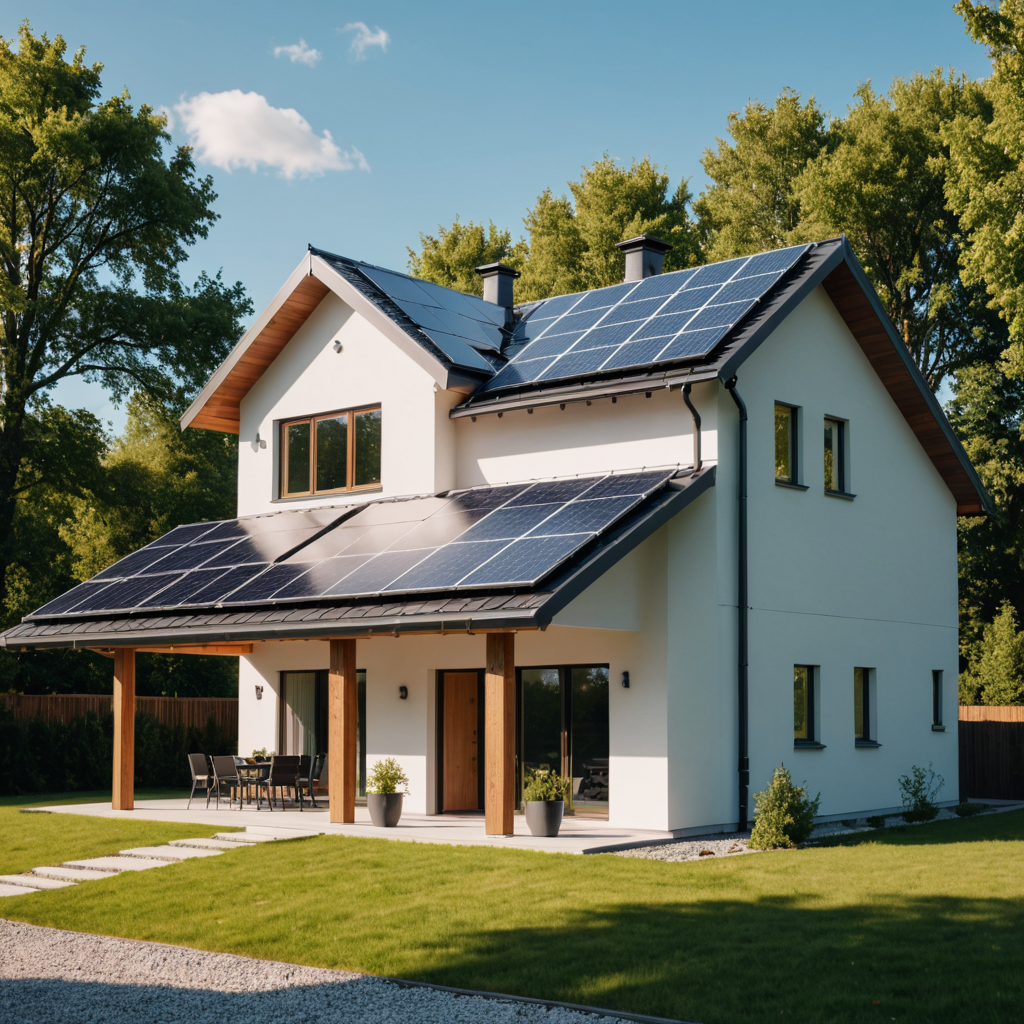
As homeowners increasingly seek sustainable and cost-effective energy solutions, solar panels have emerged as a popular choice for generating clean electricity and reducing utility bills. While solar panels offer numerous benefits, there are also considerations and challenges to weigh before investing in a solar energy system for your home. In this article, we will explore the pros and cons of installing solar panels to help you make an informed decision about integrating solar power into your residential property.
Pros of Solar Panels for Your Home:
1. Renewable Energy Source: Solar panels harness sunlight to generate electricity, providing a renewable and sustainable energy source that reduces reliance on fossil fuels and decreases carbon emissions. By tapping into the abundant and freely available solar energy, homeowners can contribute to environmental conservation and combat climate change by adopting clean and green energy practices.
2. Energy Cost Savings: One of the primary advantages of solar panels is the potential for significant energy cost savings over the long term. By generating your electricity from solar power, you can reduce or even eliminate your monthly utility bills, depending on the size of your solar system and energy consumption. With net metering programs and incentives, homeowners can earn credits for excess energy produced and further offset energy costs.
3. Increased Property Value: Installing solar panels can enhance the value of your home by making it more attractive to eco-conscious buyers and increasing its energy efficiency and sustainability features. Homes with solar panels typically command higher resale values and sell faster on the real estate market, offering a return on investment and added appeal for environmentally conscious homebuyers.
4. Energy Independence: Solar panels provide homeowners with greater energy independence and resilience by generating electricity on-site and reducing reliance on the grid during power outages or emergencies. With battery storage systems, homeowners can store excess solar energy for use during nighttime or grid outages, ensuring a reliable and uninterrupted power supply for essential appliances and devices.
Cons of Solar Panels for Your Home:
1. High Upfront Costs: One of the main barriers to solar panel adoption is the initial investment required for purchasing and installing a solar energy system. While solar panel prices have decreased in recent years, the upfront costs of equipment, installation, permits, and labor can be substantial, making it challenging for some homeowners to afford solar power without financing or incentives.
2. Variable Energy Production: Solar panels rely on sunlight to generate electricity, which means that energy production can vary depending on weather conditions, shading, and time of day. In regions with limited sunlight or frequent cloud cover, solar panels may not operate at peak efficiency, leading to fluctuations in energy output and potential reliance on the grid during low production periods.
3. Maintenance and Repairs: Solar panels require regular maintenance, cleaning, and occasional repairs to ensure optimal performance and longevity. Dust, debris, and shading can impact solar panel efficiency, requiring periodic cleaning and inspection. Additionally, components such as inverters, batteries, and wiring may need maintenance or replacement over time, adding to the overall cost of owning a solar energy system.
4. Aesthetics and Installation Challenges: The installation of solar panels on rooftops or properties may pose aesthetic concerns for some homeowners, especially in historic districts or neighborhoods with strict design guidelines. While solar panel technology has advanced to offer sleeker and more integrated designs, the visual impact of solar arrays remains a consideration for property owners seeking to maintain the architectural integrity of their homes.
The decision to install solar panels for your home involves weighing the pros and cons of solar energy to determine if it aligns with your energy goals, budget, and lifestyle preferences. While solar panels offer benefits such as renewable energy, cost savings, property value enhancement, and energy independence, they also come with considerations such as upfront costs, variable energy production, maintenance requirements, and aesthetic challenges. By conducting thorough research, consulting with solar providers, and evaluating your energy needs and financial resources, you can make an informed choice about integrating solar power into your home and reaping the long-term benefits of clean, sustainable, and renewable energy for years to come.
Cedar Hill St. Louis Jefferson County Olivette Kirkwood Ballwin Arnold Franklin County St Charles County Fenton High Ridge Dittmer Creve Coeur
